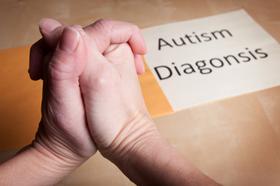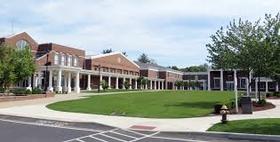Learning disabilities like dyslexia or ADHD plague a student throughout their academic career. Many who struggle with disabilities in secondary schools don't even consider college a possibility.
The good news is that many community colleges are making it easier for students with learning disabilities to pursue higher education by offering transition and support programs that promote success. Be inspired by the ways community colleges are helping LD students, as well as tips for finding and planning for college, no matter what your learning disabilities might be.
Project Access
Students with learning disabilities often find the transition between high school and college difficult. High school environments that are typically nurturing and supportive for LD students do not always provide preparation to help students take their educational needs into their own hands when heading off to college.
This video illustrates how the Project Access Summer Institute operates.
Thankfully, the Project Access Summer Institute is designed for just that purpose: to show students with learning disabilities how to move from a high school environment to one that requires them to take a greater role in meeting their own educational needs.
Project Access offers a month-long program that teaches college-bound students how to advocate for themselves to get the much-needed time, tutoring, and additional services they need.
According to a recent report on USA Today, programs like Project Access have increased tenfold in recent years as more students with learning disabilities decide to pursue higher education. Debra Hart, the director of education and transition for the Institute for Community Inclusion at the University of Massachusetts-Boston, told USA Today that the number of programs has grown from just 22 in 2001 to more than 250.
According to a report at the Chronicle of Higher Education, this Vermont institution was specifically created to help students with learning disabilities get the degree they need to move into the career of their choice. This school has a 25-year history of preparing students for various career fields, including the STEM disciplines: science, technology, engineering, and mathematics. The college received three federal grants over the last two years to help finance the STEM project.
Landmark is now collaborating with three other community colleges across the country to develop a one-semester course for educators to prepare them to work effectively with students who have learning disabilities within the STEM program. The expansion is occurring as educators are realizing there is a disproportionate number of LD students in community colleges today. Steve Fadden, vice president for research and institute operations at Landmark, told the Chronicle that students with learning disabilities have hidden problem-solving strengths. Instructors who learn to tap into those strengths will help students achieve more tremendous success in the classroom.
Choosing a College
For students with learning disabilities of any kind, choosing the right college can make all the difference in their academic success. LD Online offers the following tips to help students make the right choice for their needs:
- Find out what type of support is available to students with learning disabilities.
- Ask if the college has a specific program available to help with disabilities and whether a full-time staff monitors it.
- Inquire whether staff members are available to council LD students during the registration, orientation, and course selection process.
- Find out which specific courses offer tutoring services and whether the tutoring is automatic or requires a student's request for assistance.
- Ask whether staff or students provide tutoring services for students with learning disabilities and if the tutors receive special training in working with learning disabilities.
- Research the type of attitude the college staff has toward students with learning disabilities.
- Determine whether students with learning disabilities can take a lighter course load and more time to graduate than average students.
- Get contact information so students and their parents have a specific person with whom to talk if they have concerns or questions throughout the year.
This TED Talk looks at how schools handle learning disabilities.
By taking the time to research various institutions and their available programs, you will be more likely to find a college that can easily accommodate your learning disabilities and put you on the track to academic success and the degree you need to pursue the career of your choice. Special programs like those listed above help LD students find the right college, prepare for the college experience, and perform well in their classes as they make their way through a two or four-year degree program.
Questions? Contact us on Facebook. @communitycollegereview















